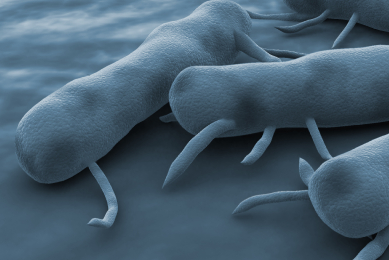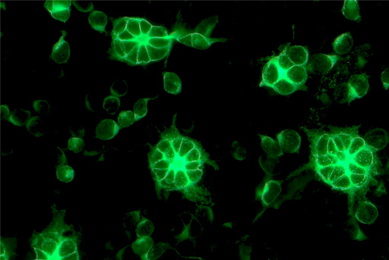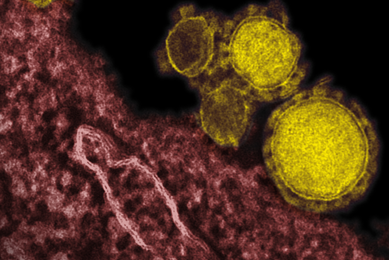Why it’s important
Since the eradication of smallpox, mpox has become the foremost Orthopoxvirus infection in humans. This virus is zoonotic in nature and presents with symptoms very similar to smallpox, albeit clinically less severe.1 The fatality rate of this virus ranges between 1-10%, with the severity of the infection depending on various factors such as the viral clade, access to health care, and if the person is immunocompromised.
To date, there have been two distinct clades of monkeypox virus identified: Clade I and Clade II.2-4 Of these, Clade I has historically been associated with more severe disease (case fatality rate of 10%) and higher transmissibility whereas Clade II is associated with milder clinical symptoms (case fatality rate near 1%). Thus far, the World Health Organization (WHO) has reported that all samples from the current outbreak that were confirmed by PCR are Clade II.
While global health experts have not raised alarms just yet, the undetected spread of mpox outside of the endemic regions is unusual.1,5 Health agencies are monitoring cases, mitigating the spread, and alerting the public of the potential of infection. A WHO committee will hold an emergency meeting next week to determine whether the outbreak rises to the highest global health alert level of a Public Health Emergency of International Concern (PHEIC).
How we can help
ATCC’s collection includes a variety of live orthopoxviruses and nucleic acids that support mpox research efforts and assay development, including several strains recommended for exclusivity testing. We are also preparing additional genomic DNA products for distribution to our customers. We will continue to monitor the outbreak carefully to ensure we have the products needed to support research efforts. Investigators are also encouraged to visit BEI Resources, an NIAID-funded program managed by ATCC, which offers a catalog of mpox and pox-related materials to qualified researchers.
Anne McCormack, BA
Digital Marketing Specialist, ATCC
Anne is a Digital Marketing Specialist at ATCC. She is editor of ATCC's Credible Conversations blog. She works collaboratively with scientists at ATCC to share innovation and lively topics of interest with the ATCC audience. Anne has over 20 years experience writing and editing science articles for print publications such as New Technology Week, Manufacturing and Technology News, and for websites including AOL and the National Geographic Society.
Kyle Young, MBA
Product Manager, ATCC
Kyle Young, MBA, is a Product Manager with 14 years of laboratory experience in virology and molecular biology. He has worked extensively with virus authentication at ATCC, leading several process development and improvement efforts. He has also been involved in the attainment of ISO certifications in several laboratories. He currently performs product line management work for ATCC’s Microbiology collections. Mr. Young earned a BS in Biology from the University of Tennessee and an MBA from George Mason University.
Dig into infectious disease research tools

Zoonotic Diseases
Zoonotic diseases are estimated to make up more than 60% of known infectious diseases. As in our response to the COVID-19 pandemic, we will partner with the global research community acquire and distribute the resources needed to respond to emerging zoonotic diseases.
More
Infectious Diseases
Despite their small size, microorganisms have a dramatic effect on human life. To control the spread of pathogenic species, researchers need access to credible reference materials and reliable data.
More
Infectious Disease Research
ATCC offers an extensive array of microorganisms and nucleic acids that promote research leading to the development of novel methods for detecting, minimizing, and treating infectious diseases.
MoreReferences
- Monkeypox fact sheet https://www.who.int/news-room/fact-sheets/detail/monkeypox Accessed 14June2022.
- WHO Mpox (Monkeypox) Research: What are the knowledge gaps and priority research questions? https://www.who.int/news-room/events/detail/2022/06/02/default-calendar/who-monkeypox-research--what-are-the-knowledge-gaps-and-priority-research-questions Accessed 14June2022.
- Update to Multi-country outbreak in non-epidemic countries. https://www.who.int/emergencies/disease-outbreak-news/item/2022-DON388 Accessed 14June2022
- WHO. Monkeypox: Experts give irus Variants new names https://www.who.int/news/item/12-08-2022-monkeypox--experts-give-virus-variants-new-names Accessed 16August2022.
- WHO Press Conference on COVID-19 and other global health issues - June 14 2022 https://www.who.int/multi-media/details/who-press-conference-on-covid-19-and-other-global-health-issues---14-june-2022 Accessed 14June2022.